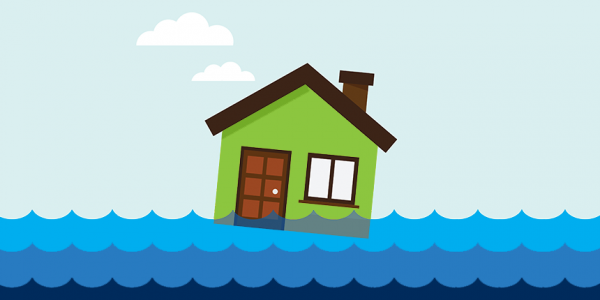Tragically right now, many Sunshine State residents will have to deal with flooding issues; and if you are buying or selling you may be rightly concerned. Please contact us immediately for specific information CALL 0732362852 or 1800GETHELP or email info@conveyancinghome.com.au. Note that the following is intended as general information only, and we would urge you to contact us, to assist you, as soon as possible.
There is no automatic right to pull out of a contract because the property is damaged or affected by flooding or cyclone after the contract is entered into. This applies even where the building on the property is so badly damaged it needs to be demolished. Most contracts state that risk of damage to the property passes to the buyer on or shortly after the contract is entered into (a common exception to this is ‘off the plan’ strata contracts where risk usually doesn’t pass until settlement).
This means the buyer has to settle and pay the full price. The buyer may be entitled to claim under their own insurance, provided damage from flooding or cyclone is covered. An exception may arise in circumstances where the seller failed to take reasonable steps to protect the property against flood damage (for example if the damage could have been prevented by the seller sandbagging the property). This will depend on individual circumstances.
Is there a binding contract? First, you need to consider if the contract has been formed (this usually happens when the seller accepts the buyer’s offer and notifies the buyer or buyer’s lawyer of the acceptance). Until this happens the buyer is free to withdraw their offer and recover the deposit. Even if the Contract is formed, the Buyer is still entitled to exercise 5 Days cooing off period.
What are the seller’s obligations? Unless otherwise amended, the standard terms of conveyancing contract provide the provision which the risk of the property is to pass to the Buyer after the contract is formed. Hence, the general position is that after a contract is entered into, the seller is required to reasonably care for the property until the settlement. This probably means a seller will be required to remove water and mud from an inundated property to prevent further damage. However, the seller would not be required to make repairs (eg replace carpets, repaint) prior to settlement. However, the failure of a seller to clean up a property after flood inundation will only entitle the buyer to compensation and not a right to terminate.
Conditional contracts – As mentioned above, the Buyers with a cooling-off period may be able to terminate a contract for any reason with a penalty of 0.25% of the price. For some contracts, the Buyer still may have the right to terminate the contract, if the contract is still subject to a building inspection and the inspection occurs after the flood and the Buyer is not satisfied. There may be other conditions under which the Buyer may be entitled to terminate the contract so you will need to consult your lawyer immediately.
Unconditional contracts – Section 64 of the Property Law Act 1974 (Qld) (PLA)allows a buyer to terminate the contract if a “dwelling house” (including units) is unfit for occupation as a dwelling before the date of settlement. Flood damage does not automatically amount to “unfit for occupation” Hence, Sellers should obtain an independent building inspection report that concludes that the dwelling is fit to be occupied. The parties may seek an extension for settlement to bring the property in compliance with section 64 of PLA.
Finance – Will your finance lender require a fresh valuation for a flood-affected property? If the new valuation doesn’t stack up, the lender may withdraw finance, putting the buyer in a position where they cannot settle. The Buyer needs to consult its bank or the broker if they are able to finance its purchase. Also, some of the financial institutions may be affected by the natural disaster as well, you will need to check if they are able to arrange your finance and provide the necessary fund to the settlement in time.
Insurance; If Buyers have arranged insurance after signing a contract then they should check with their insurance brokers to check if they are covered for loss through flooding. Many insurance companies tend not to offer flood insurance for dwellings in known flood areas. Where the buyer has not been insured, then they may have some protection under the seller’s insurance policy until possession or settlement. Buyers may be in a situation where they will have a substantial repair bill.
Please contact us immediately for further information CALL 0732362852 or 1800GETHELP or email info@conveyancinghome.com.au #homeconveyancing #brisbane

